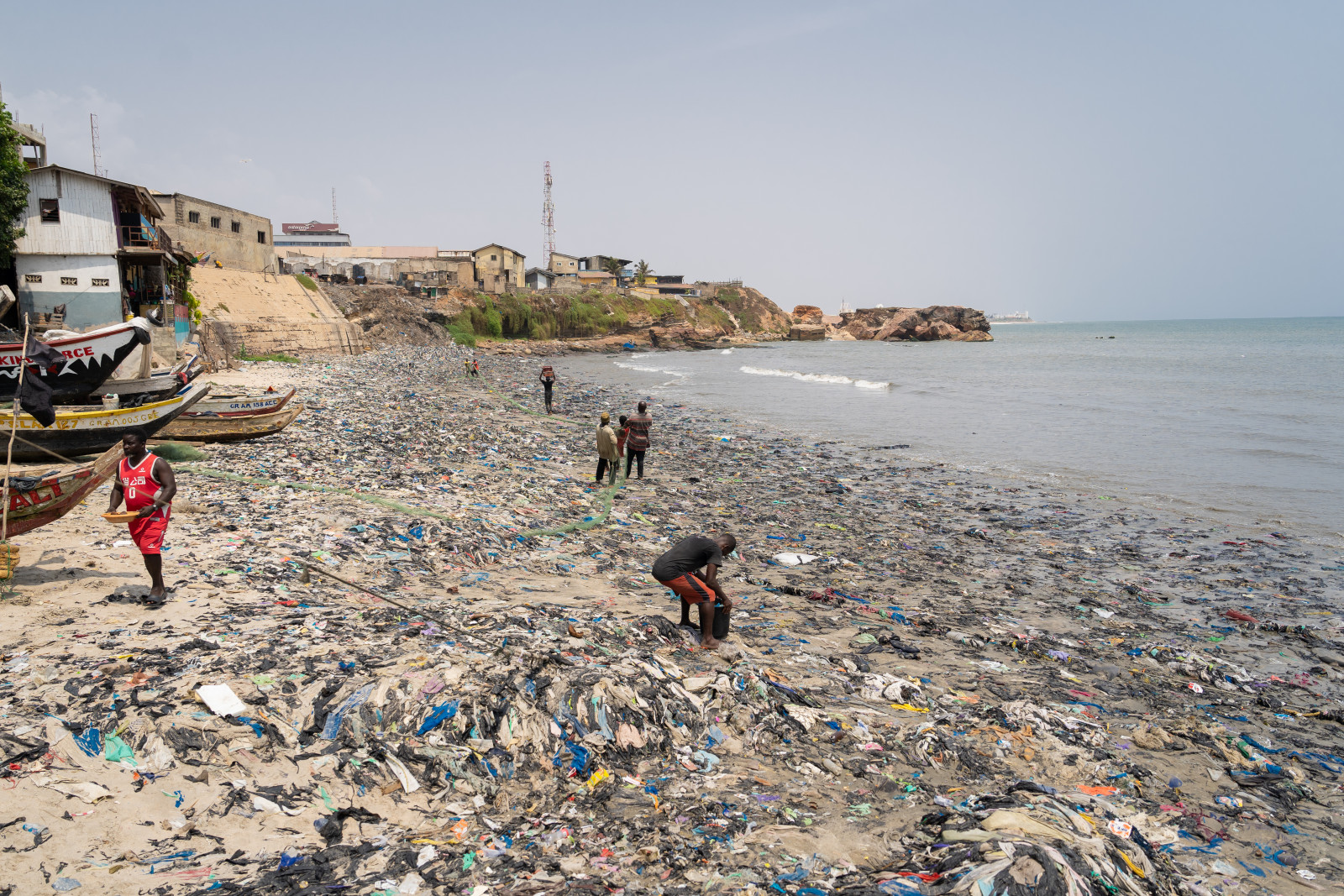Frustration is written across Richard Yartey’s face as he drags his heavy net to shore. It is filled with plastic bottles and bags, but not fish. This will cost him money.
“We often have to repair our fishing nets two or three times a week because of the plastic in the water,” he says.
Jamestown in Accra, where Yartey had cast his net, was once a thriving fishing enclave. But Yartey says they now often have to travel to Elmina, a fishing spot about 130km away.
Markets in Accra pay better but the same city also pollutes the waters with discarded water bottles, sachets and other refuse.
Ghana produces 840 000 tonnes of plastic waste annually, with only a small portion being recycled, according to data provided by the World Economic Forum.
When the unrecycled waste finds its way into the ocean, it’s not only a problem for people.
“Marine animals like turtles and whales mistake it for food and suffer serious harm or even die,” says Christopher Gordon, of the Institute for Environment and Sanitation Studies at the University of Ghana.
A 2018 United Nations study reported that 80% of municipal solid waste generated in African cities was recyclable and if this was done, it could generate up to $8 billion a year.
In 2019, Ghana launched its national plastic action, which relies on encouraging businesses to make products out of recycled plastic.
Some have heeded the call. Nelplast Ghana, for example, produces pavement blocks from plastic waste and has a workforce of 300 people.
But small-scale private enterprise is an insufficient solution to this major public problem that occurs across Africa.
Citizen initiatives in Africa recycle about 11% of the recyclable waste, according to a 2022 UN report by Desta Mebratu and Andriannah Mbandi. But there are few large-scale efforts so the rubbish instead ends up as a costly and harmful mess.
In places such as Jamestown beach, every plastic-clogged net is a reminder of the urgent need for bigger solutions. Gordon says a ban on single-use plastic should be one of Ghana’s solutions to pollution.
This article first appeared in The Continent, the pan-African weekly newspaper produced in partnership with the Mail & Guardian. It’s designed to be read and shared on WhatsApp. Download your free copy here.


















.jpg)


Discussion about this post